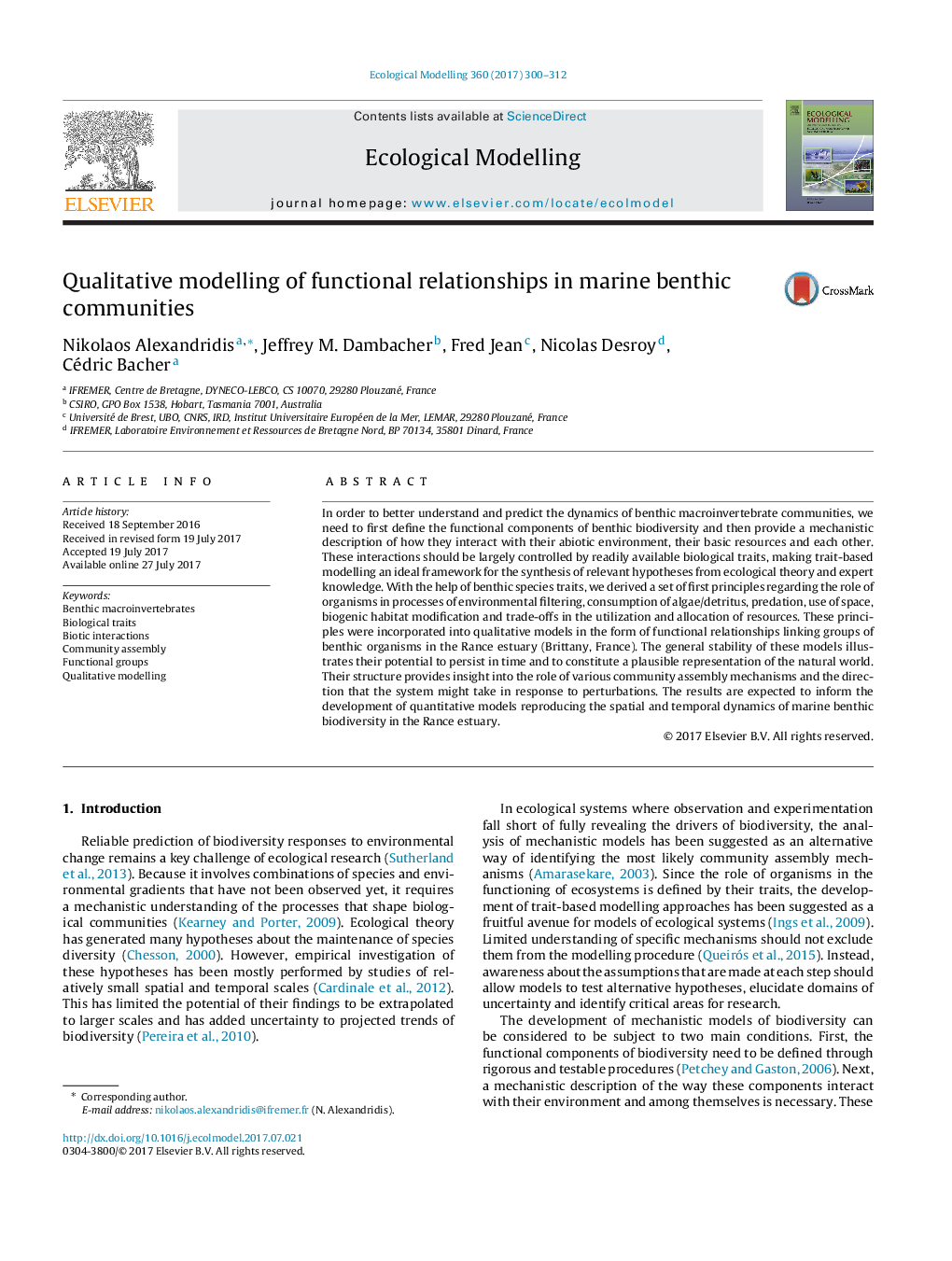| Article ID | Journal | Published Year | Pages | File Type |
|---|---|---|---|---|
| 5742070 | Ecological Modelling | 2017 | 13 Pages |
â¢We derived first principles on the role of benthic organisms in community assembly.â¢These principles dictated functional relationships among groups of benthic species.â¢Groups and functional relationships comprised qualitative models of benthic systems.â¢Stability analysis supported the models' potential to represent benthic communities.â¢Model structure offered insight into the role of some community assembly mechanisms.
In order to better understand and predict the dynamics of benthic macroinvertebrate communities, we need to first define the functional components of benthic biodiversity and then provide a mechanistic description of how they interact with their abiotic environment, their basic resources and each other. These interactions should be largely controlled by readily available biological traits, making trait-based modelling an ideal framework for the synthesis of relevant hypotheses from ecological theory and expert knowledge. With the help of benthic species traits, we derived a set of first principles regarding the role of organisms in processes of environmental filtering, consumption of algae/detritus, predation, use of space, biogenic habitat modification and trade-offs in the utilization and allocation of resources. These principles were incorporated into qualitative models in the form of functional relationships linking groups of benthic organisms in the Rance estuary (Brittany, France). The general stability of these models illustrates their potential to persist in time and to constitute a plausible representation of the natural world. Their structure provides insight into the role of various community assembly mechanisms and the direction that the system might take in response to perturbations. The results are expected to inform the development of quantitative models reproducing the spatial and temporal dynamics of marine benthic biodiversity in the Rance estuary.
